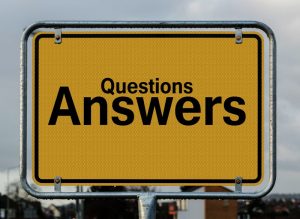Around 55,000 hysterectomies are performed in the UK every year. To choose the best option for you there are some very important hysterectomy questions to ask.
Important Hysterectomy Questions to Ask
Why Do Women Have Hysterectomies?
Sometimes a hysterectomy can be a life-saving procedure. As for cancer or post-partum haemorrhage for example. But in many instances this is not the case. Other reasons can include:
- Heavy and painful periods
- Fibroids and the symptoms they bring
- Endometriosis
- Uterine prolapse
 Other avenues may have been explored and a hysterectomy is the last resort. But there may also be instances when non-surgical routes can help. So it is worth exploring all your options. And if a hysterectomy is genuinely the best choice for you make sure you have answers to some key questions.
Other avenues may have been explored and a hysterectomy is the last resort. But there may also be instances when non-surgical routes can help. So it is worth exploring all your options. And if a hysterectomy is genuinely the best choice for you make sure you have answers to some key questions.
1. What Kind of Hysterectomy?
There are various types of hysterectomy.
- Removal of the uterus as well as the ovaries, fallopian tubes and cervix
- Sole removal of the uterus
- The top portion of the vagina may also be removed in some instances
The surgeon will also choose from abdominal, vaginal or laparoscopically-assisted access. This will depend upon:
- The nature of the condition
- Your health and medical history
- The surgeon’s preferences and expertise
- The questions you ask your GP and surgeon
Which hysterectomy questions to ask:
- Is a hysterectomy absolutely necessary?
- Can I keep my ovaries, fallopian tubes and cervix?
- If a “just-in-case” removal of everything is suggested what is my actual level of risk of future health issues or cancer?
- What are the pros and cons of each option?
- The possible complications and success rates of the different surgical options?
- Does the surgeon’s area of expertise match the procedure that is being suggested?
- Will it be the consultant performing the surgery? Check if you would rather not be operated upon by someone less experienced.
- Are adhesions likely and what steps could be taken to reduce them?
- What are the different recovery periods for each type of procedure?
2. Will I Have Menopausal Symptoms After a Hysterectomy?
 If you have not already had your menopause and have a total hysterectomy you will probably experience symptoms. The timing is significant. Menopause as a natural process takes place over years. You may be told this is not going to be an issue if you are in your late 40’s or older. But if your body has not completed its menopausal process you create an abrupt halt if your ovaries are removed. And menopausal symptoms are likely.
If you have not already had your menopause and have a total hysterectomy you will probably experience symptoms. The timing is significant. Menopause as a natural process takes place over years. You may be told this is not going to be an issue if you are in your late 40’s or older. But if your body has not completed its menopausal process you create an abrupt halt if your ovaries are removed. And menopausal symptoms are likely.
Your surgeon and doctor may offer you hormone replacement therapy (HRT). I believe there are good reasons for being very cautious about HRT. Whether it is standard HRT or bioidentical HRT. You do have options at this point and I believe it is worth exploring natural alternatives to HRT.
3. What Happens if I Have My Uterus Removed But Keep My Ovaries?
There are advantages to keeping your ovaries if at all possible. But even if the ovaries are left there is the likelihood of an earlier menopause. Usually by around 4 to 5 years. There may be a number of reasons for this. A major factor is thought to be because of the change in blood supply to the ovaries. The medical response will most likely be to offer HRT unless there is a history of cancer.
4. Should They Remove My Ovaries “just-in-case”?
You need to make the decision that is right for you. Based on the best information you can find. Try to find out what your actual level of risk of cancer is. There is a huge amount of fear that can drive women into a corner. Seeing the full range of options becomes difficult. This is a complex issue. I am in no way underestimating the worry and pressure women can feel at these times.
It may be suggested that your healthy ovaries are removed even if you are not specifically at risk of cancer. Presented as a “just-in-case” scenario. HRT is then suggested as a hormonal top up.
Hysterectomy – Thinking it Through
 I personally find these kinds of leaps in medical logic utterly bizarre. Healthy organs and tissue are being removed. And they may still have a role to play. Then the offer to replace them with a drug that has cancer in hormone-dependent tissues as a known side-effect. Unless you then remove every hormone-dependent tissue in that woman’s body surely she will be at risk of the cancer you were trying to protect her from? Not to mention the cardio-vascular and other side effects of HRT.
I personally find these kinds of leaps in medical logic utterly bizarre. Healthy organs and tissue are being removed. And they may still have a role to play. Then the offer to replace them with a drug that has cancer in hormone-dependent tissues as a known side-effect. Unless you then remove every hormone-dependent tissue in that woman’s body surely she will be at risk of the cancer you were trying to protect her from? Not to mention the cardio-vascular and other side effects of HRT.
Consider also the emotional and cultural aspects of this approach. What does this say about our society valuing us as women? Our intrinsic experience of our femininity?
Perhaps there is another important question to add to the list. For a male doctor or surgeon if this is mooted? With the very greatest respect, how attached are they to their testicles?
I feel that most men would be less than impressed with this as a preventative strategy for testicular cancer. Why are we women expected to be so indifferent about such a core part of our female selves?
5. What Do My Ovaries Do After Menopause?
I have sat with women who have been told their ovaries just shrivel up and do nothing. This is not the case. The ovaries do have a role to play post-menopause. They are hormonally active. They produce testosterone which is valuable for:
- Energy levels and drive
- The health of genital, breast and skin tissue
- And bone, skeletal muscle and fat tissue
It seems overly simplistic to assume that once our child-bearing years are behind us our ovaries have no role to play. They contribute to hormone levels that support our general health and well-being. I hope that as our understanding of endocrinology evolves we will realise that there are reasons for valuing every part of our bodies. For the functions we know about as well as for those we are yet to discover.
6. What Are Post-Operative Issues From a Hysterectomy?
 Taking time to consider these hysterectomy questions to ask will help you to minimise potential issues. Choosing the best kind of hysterectomy in both the short and long term.
Taking time to consider these hysterectomy questions to ask will help you to minimise potential issues. Choosing the best kind of hysterectomy in both the short and long term.
All operative procedures carry elements of risk. Mortality is relatively rare from a hysterectomy. But there are potential post-operative complications that you need to be aware of when making your decisions.
Common Issues After Surgery
Most women will expect to have to navigate their way through post-operative issues including:
- Possible pain
- Bleeding
- Sickness
- Infection
- A period of convalescence
These can often come with the territory of having an operation.
Urinary Tract and Bowel Injuries
Women also need to question how they feel about possible urinary tract or bowel injuries. The risks may vary according to the route taken. Laparoscopic procedures often have a higher risk of urinary tract and bowel injuries. This needs to be discussed with the surgeon when assessing the best option for you.
Pelvic Organ Prolapse
There is also the future possibility of prolapse. Your pelvic cavity is structurally designed to house all the organs within it. The broad ligaments that hold the uterus in place are of critical importance in the stability of the pelvic cavity. If parts are removed and supporting ligaments cut we increase our risk of prolapse of what remains.
Women can be offered a hysterectomy for a uterine prolapse. That might be an apparently “simple” way to solve the problem. But the awful irony is that she may then increase her risk of further prolapse:
- Vaginal vault prolapse
- Bladder (cystocele)
- Rectal (rectocele)
If the cervix is removed vaginal vault prolapse becomes more likely. One of the good reasons for keeping the cervix if a hysterectomy is performed.
So a hysterectomy can precipitate a prolapse and can also be offered to treat it. It is both the chicken and the egg.
Supporting Pelvic Organ Health
The Whole Woman website and book “Saving the Whole Woman” by Christine Ann Kent are very valuable sources of information. If you have a prolapse do consider these before making any decisions. There are a number of well-referenced facts around the variable rates of success for many of the routine procedures. And the difficulties women can experience as a result.
Hysterectomy Questions to Ask & Making an Informed Choice
 Women may be told that they don’t need their uterus or ovaries once their reproductive years are over. That they should regard them as at best redundant. And at worst a cancer risk. A hysterectomy offers a way to “sort it all out”. But in my experience of talking with women over the years the upsides have often been overstated. The downsides barely mentioned or at best underplayed.
Women may be told that they don’t need their uterus or ovaries once their reproductive years are over. That they should regard them as at best redundant. And at worst a cancer risk. A hysterectomy offers a way to “sort it all out”. But in my experience of talking with women over the years the upsides have often been overstated. The downsides barely mentioned or at best underplayed.
Women often make this decision based on limited information as to the possible issues arising from surgery. And the genuine range of options they have. Very often they may also be in pain, exhausted and run down when they are trying to come to a decision. Chances are they will be juggle work and family. And any number of other stresses to contend with.
In some instances there may be very little choice. A hysterectomy may be a necessary last resort. Then it is a question of preparing well. Taking care to minimise the downsides. And whether you have a hysterectomy or not there is always a good case for supporting our present and future hormonal balance. The physical stability and functioning of our pelvic organs. And our sense of self and femininity.
I hope you have found these Hysterectomy Questions to Ask to be helpful. If you would like to find out more about your options and support please do contact me – thank you.

